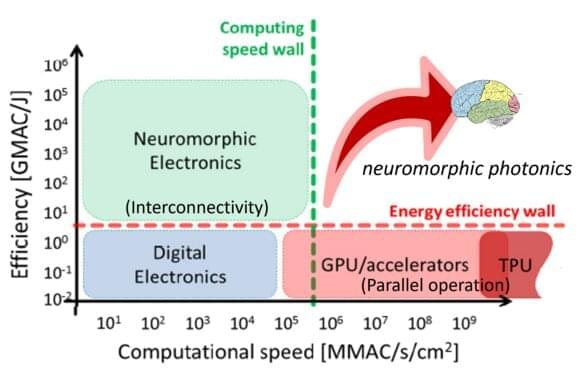Supercomputers are extremely fast, but also use a lot of power. Neuromorphic computing, which takes our brain as a model to build fast and energy-efficient computers, can offer a viable and much-needed alternative. The technology has a wealth of opportunities, for example in autonomous driving, interpreting medical images, edge AI or long-haul optical communications. Electrical engineer Patty Stabile is a pioneer when it comes to exploring new brain-and biology-inspired computing paradigms. “TU/e combines all it takes to demonstrate the possibilities of photon-based neuromorphic computing for AI applications.”
Patty Stabile, an associate professor in the department of Electrical Engineering, was among the first to enter the emerging field of photonic neuromorphic computing.
“I had been working on a proposal to build photonic digital artificial neurons when in 2017 researchers from MIT published an article describing how they developed a small chip for carrying out the same algebraic operations, but in an analog way. That is when I realized that synapses based on analog technology were the way to go for running artificial intelligence, and I have been hooked on the subject ever since.”
